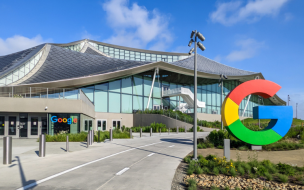Virtual working is already catching on in business. Advances in technology mean managers are expected to lead global teams from a distance with video and audio conferencing systems. This trend is set to surge.
BusinessBecause surveyed 355 MBA students, graduates and applicants – tomorrow’s business leaders – in October 2014. The data show predictions of when they think they will retire, how the working environment will have changed and which companies will still be around in 36 years’ time.
More than 70% of respondents believe that in 2050, the majority of the working week will be based remotely.
Only 17% of people felt that they would meet their entire working team; 40% thought they would only meet 20% of their colleagues; and 37% thought they would meet half of their team. Only 6% felt they would never meet any of their team.
Dr Chris Dalton, lead for personal development at Henley Business School, said: “Remote working as a policy has proved an attractive idea for many organisations that operate in a knowledge environment.”
He added: “In the right context, it can present an organisation with a new way of capturing talent and building value. It’s likely that the trend will continue, if only because technology enables it.”
This contrasts the current commercial property boom in major cities. In London for instance, the amount of office space being built has hit a 10-year high, according a November report by Deloitte Real Estate.
Marc Wells, principal learning technologist at Imperial College Business School, said: “Office space can be limited and expensive to increase, and working remotely can be a cheaper alternative to investing in further office space.”
Despite the increase in provision of online and distance learning, just 6% of respondents think that MBA degrees will be taught entirely online. A large portion (38%) thinks that learning will be a combination of part-time study and other methods.
The survey revealed that the majority of respondents (55%) expect to retire between the ages of 50-70.
The most commonly selected age-range for anticipated retirement was 60 to 70 years, in line with OECD expectations. This is a contrast to 2013’s survey respondents, who expected to retire between the ages of 70-80, perhaps indicating increased optimism in the global economic recovery.
MBAs also predicted which companies will still be operational in 2050. Some 76% think Google will still be around; 50% think McKinsey will survive; 48% expect Apple to remain in business; and 41% expect Goldman Sachs to still be operating.
But there is bad news for Facebook. Just 23% of respondents expect it to survive to 2050, a fall of nearly 2% on 2013’s survey.
With a current oversupply of crude oil and prices plummeting, the majority (53%) of survey takers expect solar energy to be the dominant source of office power in 2050. The rise of nuclear energy (30%) is also evident, suggesting the source is becoming more widely viewed as a viable alternative to fossil fuels and renewables.
MBAs also think that robots will be useful in 2050. Nearly 50% of those surveyed think that robots can perform the role of a financial trader; and roughly 40% think accountants could be uprooted by the android invasion. But less than 5% think that the role of CEO can be completed by a robot.
A subset of 239 respondents provided 300-word free-text answers to the question “What Will The Office Be Like In 2050”.
Of those entries, 66 made specific reference to the use of robotics and how they will help them in the work place, on the way to work, or helping to get them ready in the morning.
Almost all of the 239 answers accepted rapid technological advancement as inevitable by 2050. This includes improved health and communication.
A minority of in-depth entries suggest that work will be project based and that employees will work for multiple employers, on a temporary basis.
This trend is already catching on. A number of temporary consultancy websites rent MBA students to companies who need short-term project based work to be carried out, for a fee.
Stephen Robert Morse, co-founder of digital temporary staffing agency SkillBridge, said companies are now able to hire trained specialists at a lower price than large firms through a curated match-making process.
He added: “Our clients value the time we save them by curating candidates. Our candidates also prefer to only see projects that are relevant to them.”
Nearly 50% of respondents to the survey said that by 2050, the average career in a single industry will last just 1-5 years.
RECAPTHA :
06
84
16
3b








